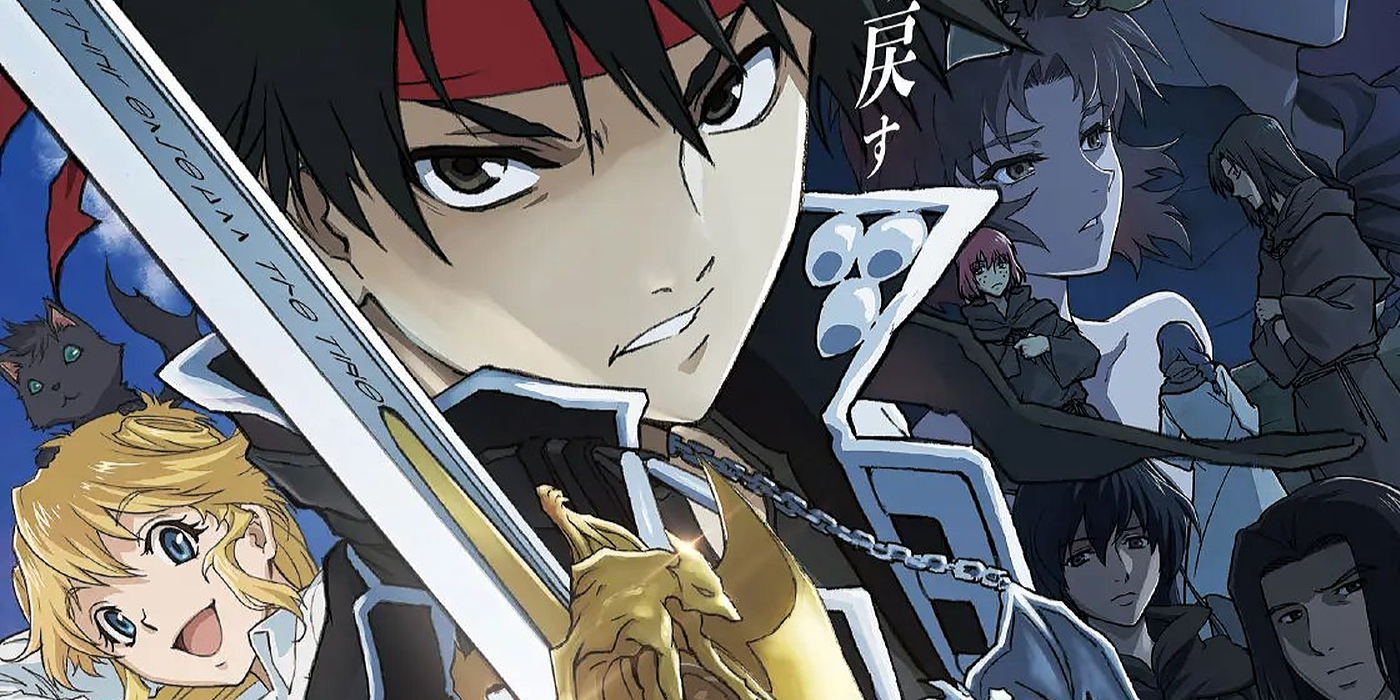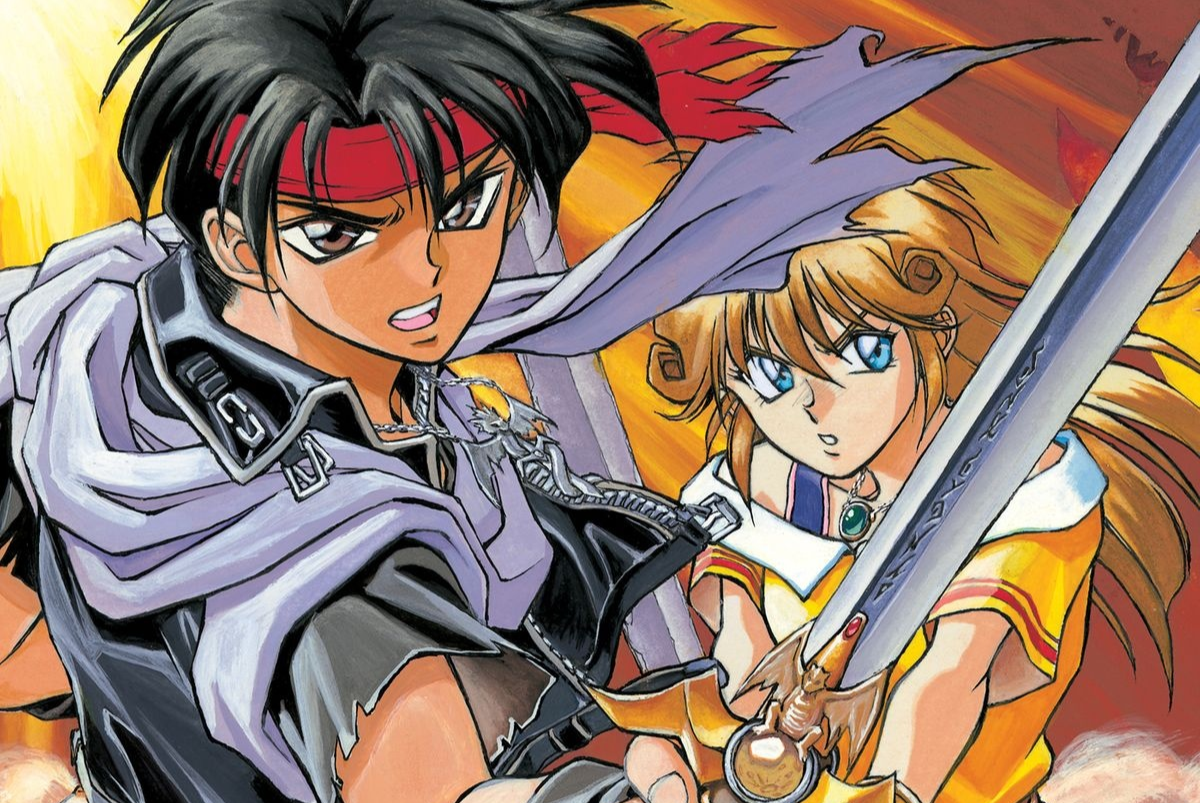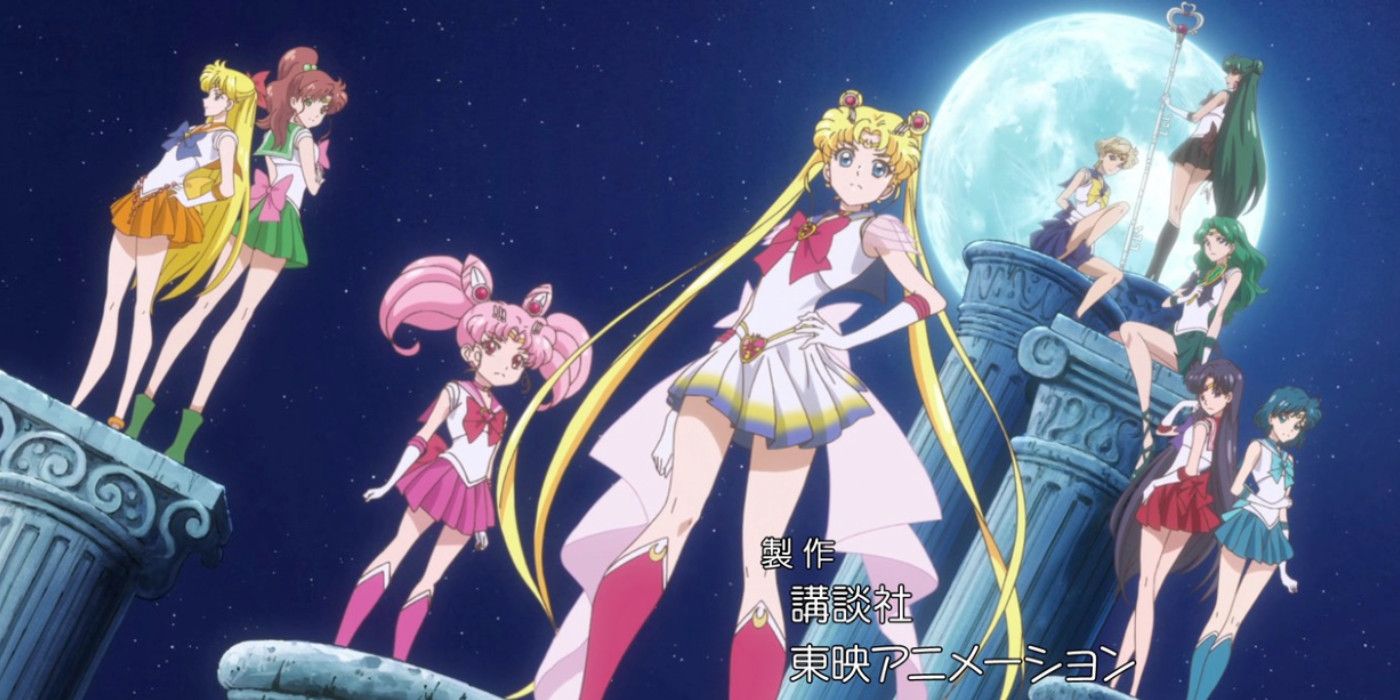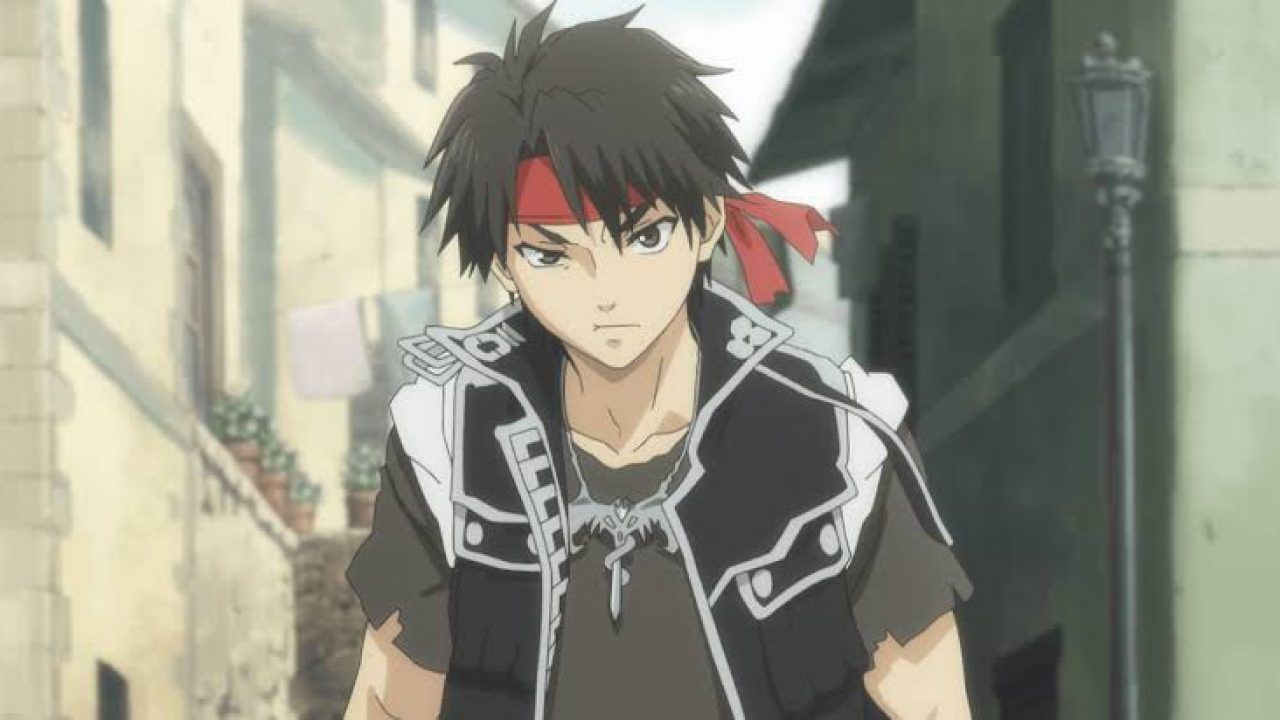Over the past few years, pop culture has been awash with '80s nostalgia. From Stranger Things to Ready Player One to It to Ghostbusters: Afterlife and everything in between, synth soundtracks, big hair and odes to horror maestro Stephen King have been flooding our small and big screens. It's a testament, arguably, to our current uncertain time that has led tried-and-tested properties of yesteryear to become more attractive to both studios and audiences.
In anime, however, its the following decade, the '90s, that has been of more interest to both parties. Following the return of Sailor Moon (Sailor Moon Crystal) and Cardcaptor Sakura (Cardcaptor Sakura: Clear Card), a Tokyo Mew Mew comeback is on its way. Meanwhile another relic of the era, Sorcerous Stabber Orphen, has already been repackaged into a new series and started airing through FunimationNOW.
Orphen is the rogue shonen-leaning title amongst the shojo/magical girl properties listed above, which, for some reason, have proven to be more popular targets for rebooting. Orphen isn't exactly a title that people have been clamoring to see return, either. It began life in the mid-'90s as a series of light novels before being adapted several times into various manga and anime iterations, though Western audiences may be more familiar with the 2000 PlayStation 2 game (and launch title), Orphen: Scion of Sorcery. The game isn't particularly notable save for its cut scenes, which look and feel very much like pixelated clips from an actual anime; something that would have piqued the interest of many a young, anime-curious player at the time.
It's a shame then, for those still harboring a vague, childhood fondness for Orphen, that the premiere of the new anime adaptation -- which also commemorates the franchise's 25th anniversary -- is so distinctly average. While it's perhaps not fair to judge an entire series based on its first episode alone, Orphen's series premiere offers little reason for new or old fans to watch the next 12 installments. Much of this has to do with the show's inelegant way of cramming in exposition, which leaves characters sounding like they're simply reading the flavor text from their video game counterparts rather than talking like actual human beings.
A larger problem, however, is that the premiere struggles to either fully update the property for today's anime viewers or make it enough of a throwback for pre-existing fans. The title character retains his signature black leather, fingerless gloves and chunky, gothic necklace combo, which absolutely scream of the era he was born into, but the animation style -- and the design of the world he inhabits -- is distinctly modern, making him look like a strange antique.
Orphen isn't alone in this: Sailor Moon Crystal, which began as a web series in 2014 to celebrate the franchise's 20th anniversary (and is still bearing sequel material to this day), has been hugely polarizing. Like Orphen, it got off to a similarly bumpy start with some roughly-handled animation, but even with no technical difficulties whatsoever, it wouldn't have been spared from negative responses. Despite the series being touted as a more faithful adaptation of Naoko Takeuchi's manga, a portion of the fanbase simply couldn't get on board with the modern makeover of the Sailor Guardians' designs. Cardcaptor Sakura: Clear Card suffers from the same slightly jarring stylistic shift, but as a sequel series, fans' curiosity to see Sakura, Tomoyo and Syaoran at a later point in their lives largely trumped these concerns.
The dramatic shift in style over the last 20 years -- as is to be expected for any creative industry to continue flourishing -- makes resurrecting any anime title from the past tricky, but especially one from as hallowed a period as the '90s, a golden decade for Western anime fandom. Long-running series like One Piece have, by comparison, been allowed a smoother transition by virtue of simply never going off the air, while the recent Fruits Basket reboot, a show that originally began airing in 2001, escapes the problem thanks to the comparatively newer timestamp of its predecessor.
Like most pre-digital media, the hand-drawn anime of decades gone by now have a quaint charm about them that simply can't be replicated, whether it's the dreamy, pastel-drenched landscapes of Sailor Moon or the slight shakiness between frames of action in Dragon Ball Z.
Other than generating renewed interest in inactive properties, remakes, reimaginings and overdue continuations -- of any kind -- always have to justify their existence, usually to a welcoming but nonetheless suspicious fanbase. In the case of Orphen, the timing for its revival couldn't be worse: right in the middle of a marketplace already overcrowded by Euro-centric fantasy anime. Cutting through the noise is a tall order, name recognition or no. And, as anime streaming becomes more and more popular, so does our instant access to a wider library of anime classics, too -- both modern and older. This, again, only makes the justification for revivals all the more pressing.
Those disappointed by Orphen who are looking for the quick-pacing of a modern-day action-comedy series (with RPG undertones) would be better served by the magic guild series, Fairy Tail. Those after an actual slice of '90s swords and sorcery should look no further than Record of Lodoss War, which is essentially an anime version of everyone's first Dungeons & Dragons campaign set to gloriously cheesy pop ballads of the late '80s.
Sorcerous Stabber Orphen is streaming now on Funimation. New episodes are released every Tuesday.




